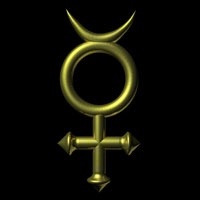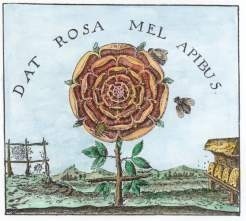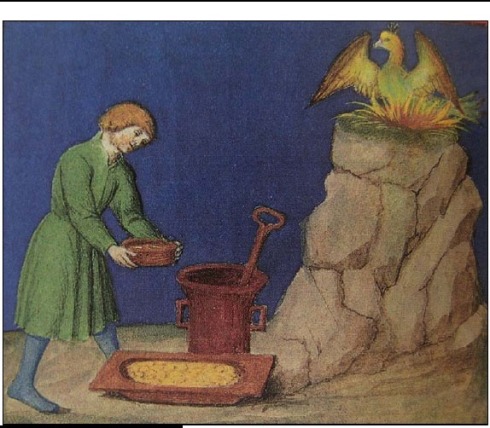I can’t exactly confess to having been afflicted with writer’s block this past year. For instead it’s truer to say I had totally given up on being a writer altogether.
Ironically, however, the circumstances leading to my complete abandonment of my craft, I believe, make for an interesting enough story, on reflection.
After having seen my debut novel sink beneath the waves of global public indifference, it was suggested to me I seek guidance in the form of mentoring from an already established writer.
And as an example of the adage “careful what you wish for”, through a series of seemingly synchronistic events, I soon managed to make contact with one of this country’s more celebrated and awarded writers.
What thrilled me most of all was the fact that this writer in question also claims to have been largely inspired to write by the very same 17th century alchemist I myself have been. Too mind-blowingly cool!
Anyway, now the story gets a little bit more complicated. Because my first real contact with this writer is actually with his wife. An amazing experience in itself. For, literally two or three days earlier, I had quite by chance read the book of poems written for her by her future husband to be, with which he had first wooed her. And now here was this great writer’s muse standing before me — in the hallowed recesses of his writing studio no less — sharing intimate details of the intervening 40 years of their married lives together.
“I think he really is happy at last,” she confessed to me, “now that he has decided to stop writing.”
It was the usual story. There’s no money in it anymore, the dumbing down of the reading public, the all-pervasive curse of political correctness. This is a man after all that can recite whole cantos of classical poems in their original Latin, from memory. I mean, I feel stupid even thinking of myself as a writer worthy of the name in comparison.
So I listen to how this great luminary has finally decided to call it quits and feel all conviction drain from my body. Still, I leave my details with his wife and arrange for a time when it would be convenient for me to make contact with the man I wished to be my writing mentor.
Soon afterwards, I do in fact next have a telephone conversation with the man himself. Although the problem is that I can’t seem to clarify whether he thinks he is going to mentor me as an apprentice alchemist or as a failed novelist. Argggh, it’s all so hopeless! I don’t know what the hell’s going on.
“Look, it’s very hard to talk about these things abstractly,” he says, “but I’ve got a book of essays coming out next month that explains everything. Give me your address and I’ll send you a copy. Read that, and then we can start from there.”
Fine. I’m totally confused. Not least because his wife has just told me he has quit writing, and yet now I’m informed he apparently has a new collection of essays coming out. Also, I don’t know if I’m ready to start an apprenticeship as a real-life alchemist any time soon.
A month passes. Nothing. No book of essays comes my way. Just as I suspected. The whole thing was an elaborate lie to brush me off. Okay, so this writer is no JD Salinger when it comes to reclusive writer types, but he’s not exactly the kind to hold literary soirées either. All right fine. I give up, I think to myself. Being a writer simply isn’t worth it. What’s more, I’ve made a complete golden ass of myself with this whole mentoring debacle already.
Two months pass. Three, four, five. Still nada. I turn my attention to honing my guitar playing skills, swearing to never write another stinking word. Alchemy is for the birds. What delusional world had I been living in? Synchronicity? Oh, brother!
Seven, eight, nine months go by. I haven’t written a single poem, stanza or word. But my guitar playing is off the chart. Woo-hoo, couldn’t be happier.
Ten, eleven, twelve months have now past, when I pull up in the driveway and see an envelope sticking out of the letterbox. I grab the oversized piece of post and open it distractedly in the front seat of the car.
Oh, shit. It’s the book of essays, but I can’t remember their significance. I’m finally happy being just another second-rate guitarist rocking the suburbs. Man, I’ve given up. Like really given up. What the fuck. I feel like someone has just dragged the needle back across the record of my life, and that the back-masked message I’m now hearing threatens to implode the very reality of my new simple, dumbed-down choice of existence.
“Read that, and then we can start from there,” my would-be mentor had told me almost exactly a year ago.
Start what? I can’t remember what it was I wanted so badly. Let me go back to my Wild Turkey and amplified heat haze. Fuck this, I was happy. I was happy for having quit.
I crack open the cover of the book, searching for answers. But it only gets worse. My mentor has handwritten notes to me in the margins of his own book. His tone is jovial and self-deprecating; his handwriting impeccably informal.
Don’t make me go back to being my old self, I beg the Fates. It’s too hard to contemplate. I’m a fraud. A master alchemist will see right through me. I’ve forgotten how to turn words into a golden phrase. I have fallen out of love with all language and it with me.
But still I hold this invitation in my hands.












You must be logged in to post a comment.